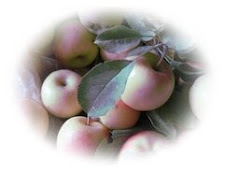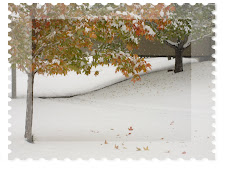

Pressure Cooker Beans.... and beans soaked in a brine solution. Ah, right when you think you've mastered cooking beans... you encounter yet another method to cook them. Could there possibly be a better way to cook beans? I mean really... beans? All you have to do is cook the beans in water until done. Right?
Well, there's actually a different technique that's applied to the beans... unexpected... but the result yields beans that are creamy, and oh-so tasty. So... the trick is to soak the beans in a brine. That's right... soaking the dried beans in salted water.
For the longest time, I thought you weren't supposed to add salt to beans when cooking them. Reason being is that the salted water may toughen the outer skin of the beans and make them hard. But that's debatable...as some actually say the salt aids in cooking the beans faster. But for me, the idea of never cooking beans in salted water has sort of gone out the window recently. Well, sort of...
Some time ago, I was reading an article on how to cook beans...soaking them or not. The article was favoring the soaking method...and I agree. Not that you can't cook them unsoaked... it's just that I prefer them soaked, as your body can digest them better. So I just plan accordingly. In any case, I happened to read the comments to the article, and one particular comment stood out. The person had recently come across America's Test Kitchen's method of brining beans before cooking....which helps the beans retain most of their skins while cooking and making the inside creamy and more flavorful. No skins floating around. Well, my ears perked up (or my eyes widened) when I read that...What, brining beans?! No, no,no... you aren't supposed to add salt to beans! But then I thought about it...maybe, just maybe I could try it and see for myself. And so I did...
I didn't exactly know the amount of salt to water as it wasn't stated in the article... so I just made my own ratio. Tasted the water and salt...adjusted it until I felt it was sort of like sea water... more or less:). Made my own brine and applied the method to 3 different beans. The beans were incredibly tasty, kept most of their skins on, and most of all they didn't taste bland. I loved how flavorful they were... the salt from the brine penetrates the whole bean. So yes, I didn't actually cook the beans in salted water... rather, I soaked the beans in salted water. A different technique.... that works! There were a few stray skins floating around, but most beans actually had the skins intact.
I'm now a firm believer in brining my beans before cooking them. And since I always use my pressure cooker when cooking the beans, I chose to use the same method. But you can still brine your beans and cook them in a traditional pot... obviously they will take longer to cook.
I haven't bought canned beans in years, and now I have found a way to get those creamy and flavorful beans...without them tasting bland. I'll freeze the beans... for those days when I need some for a dip, salad, or main dish. Very happy with the result... I'm sharing my find, and passing it along for those of you who wish to try it. Hope you enjoy...
Note: Overcooking the beans will make the beans burst, regardless of the brine solution...but they will still taste delicious:).
All beans are different...older ones always tend to need a bit more cooking....and really old beans are more likely to split their skins and remain tough.
After making my batches...I did a bit more research and found ATK's brine solution, which I'm posting below, along with the one I made.
The brining method is supposed to work for all beans...except lentils.
Tip: You will notice there is a bit of oil added to the pot when cooking the beans... this helps with having less "foaming" which can occur while cooking the beans in a pressure cooker.
You will need: inspired and adapted from America's Test Kitchen
My Version: before I found ATK'S version, but worked really well....
Overnight Soak Method
12 oz bag of dried beans
2 TBS kosher salt
5 cups water
America's Test Kitchen's Version: haven't yet tried this version
Quick Soak Method
3 TBS kosher salt
2 quarts of water
2 cups dried beans
~Bring 2 quarts of water and 3 tablespoons of salt to a boil. Pour the hot water over the beans and let them sit for 1 hour. Drain and rinse the beans well before proceeding with recipe.
To Cook:
2 cups soaked dried beans
6 cups water
2 TBS oil
flavorings( carrots, onion, garlic, bay leaf, etc...)
Directions:
1. In a large bowl add beans, water and salt. Mix thoroughly.
2. Soak beans overnight(8-12 hours). With my brine, I left mine about 8 hours or so. Drain and rinse well....or do ATK'S quick soak method above.
3. Add beans to pressure cooker, then add water and oil ... the oil keeps the foam from bubbling up.
- for 1 cup of soaked dried beans I use 4 cups of water...if using more than 1 cup beans, I use 3 cups of water for each cup of soaked beans....
- add 1 TBS oil for every cup of soaked dried beans to the water... so 2 cups beans will have 6 cups of water and 2 TBS oil.
- add any flavorings of choice, bay leaf, carrots, onion, celery, garlic. Do not use acidic products when cooking... such as tomatoes....add them at the end.

4. Close lid, heat on high until pressure is reached. Lower heat to low and cook for 10-15 minutes...depending on beans.
If you want to use the beans in a salad, cook the beans using the minimum time... if using the beans for a dip, cook the beans a bit longer.
Time is approximate...for my electric stovetop, at my altitude. You may need to adjust...but start with the less time, as you can always cook further, if need be.
- Northern/Navy takes about 10-12 minutes
- Pinto takes about 11-13 minutes
- Garbanzo takes about 12-15 minutes
- Black beans takes about 10-12

























10 comments:
Ellie,Multumesc mult pentru reteta "Pressure Cooker Beans...
Chiar aveam nevoie pentru ca sa stiu cate minute...
O zi plina de bucurii!
Speranta, Imi pare bine ca reteta iti este de folos... este buna si pentru mine, cand uit si eu cat sa tin fasolea pe foc:)...
Multumesc pentru vizita, si iti doresc si tie la fel o zi frumoasa!
We consume a lot of beans and have been soaking beans for generations before cooking them. I do add a pinch of salt & baking soda in the water but salted water is something new (was an absolute don't). I am going to try it for sure.
Bergamot, I sure hope you like the end result to brining beans... I too was skeptical, but I've been using the brine for some time now, and I love the flavor the salty brine adds to the beans. I haven't yet tried using a regular pot, as I prefer the pressure cooker. But I would love to hear your feedback on the beans... curious to see if you see a difference:).
Thanks for stopping by...it's always nice to hear from you:)
Hi Ellie! Love your blog! I must have been here before because I found your link in my google search while looking for a Vanilla Cupcake recipe.
I must say, your bean "experiment" sounds inviting. I will need to try it ASAP!
Thanks so much for sharing and, Happy New Year!
Oh, Louise...thank you! Really appreciate you stopping by...and so glad you are enjoying the blog.
I'm hoping you will enjoy this method of cooking dried beans... I sure love it:)!
Wishing you and your family a Wonderful New Year as well!
I always get ugly beans when I pressure cook mine so I'm going to try this and see if it makes a difference (and try not to overcook them because that might be part of the problem too)! Do you ever "quick-soak" yours in the pressure cooker before actually cooking them or do you just do overnight soaks?
Mub, I'm hoping this method works for you too...
I've quick soaked the beans in the pressure cooker as well in the past(without the brine)...but I found that it sort of made the beans lose their skins too much, get broken up a bit more.... and honestly it was more of a hassle for me... I think that was because I applied the quick soak method twice before finally cooking the beans. I would boil the beans a couple of times, rinse and then cooked the beans. But this was before the brine:)...
I'll have to give the quick soak method a go...with the brine of course, to see how that goes. But I do prefer the overnight method.
I've independently been using this method for a while now with great effect. I pressure cook on high for 10 minutes for all standard varieties and do natural pressure release. Perfect creamy textures and no exploded beans. I'll second your combination of brining and pressure cooking. Very time efficient as well, and it's just not that hard to set up the brining the night before.
Anon, I'm, glad we are on the same page:)... brining and pressure cooking makes the creamiest and tastiest of beans...
I like how you make it easier by cooking all sorts of beans in 10 minutes and then using the natural release method... the residual heat will definitely cook the beans further, if needed. Thanks for stopping by and sharing your method. I appreciate it!
Post a Comment